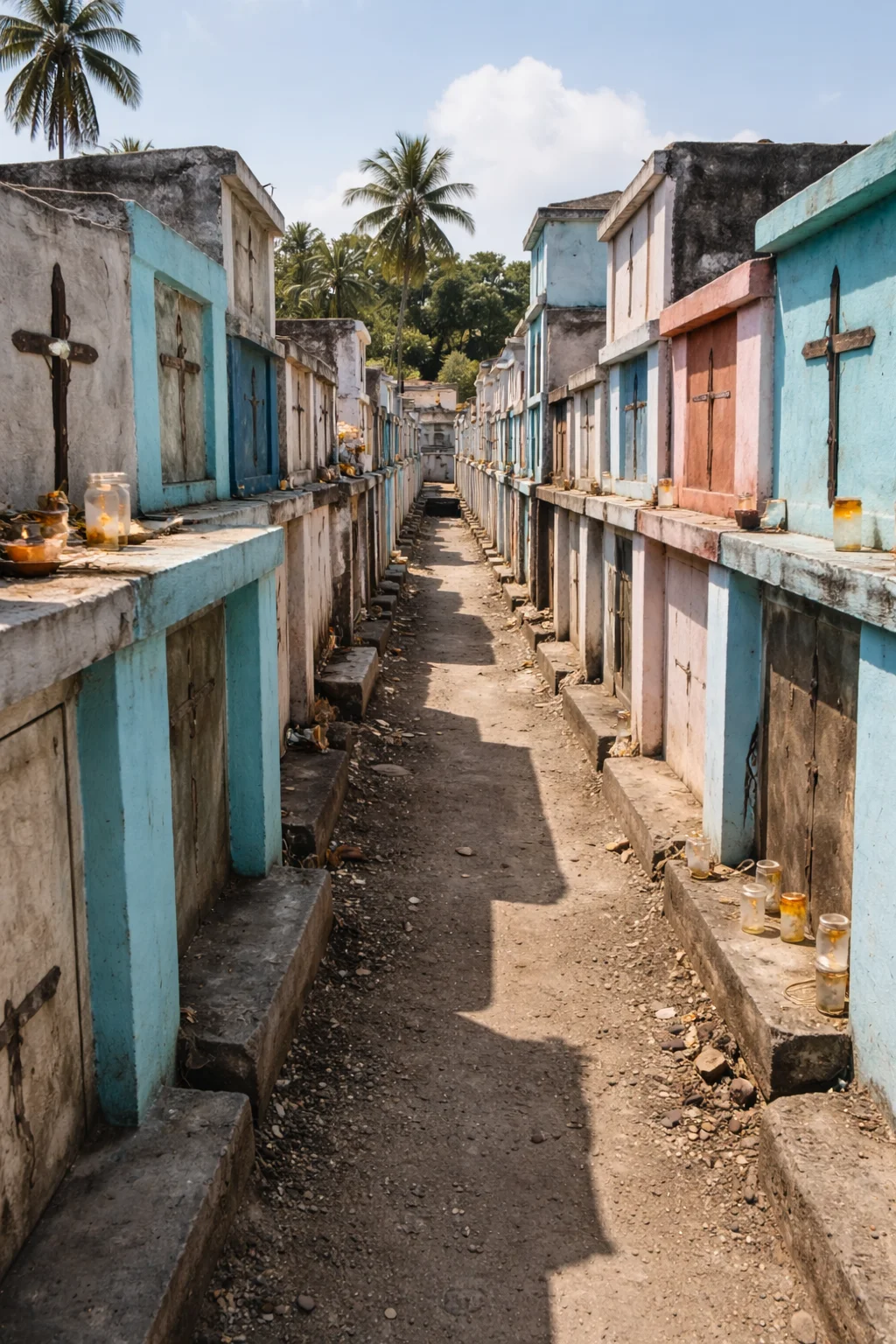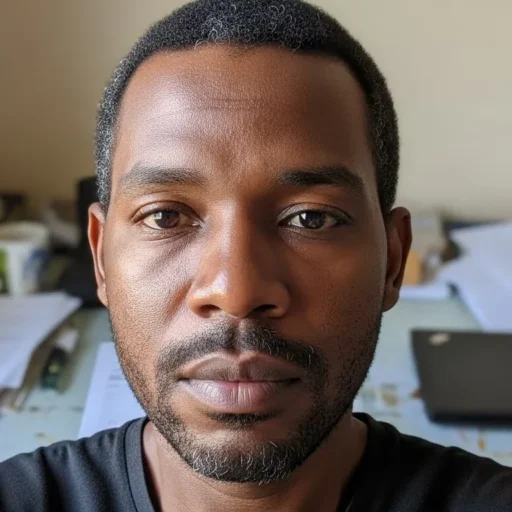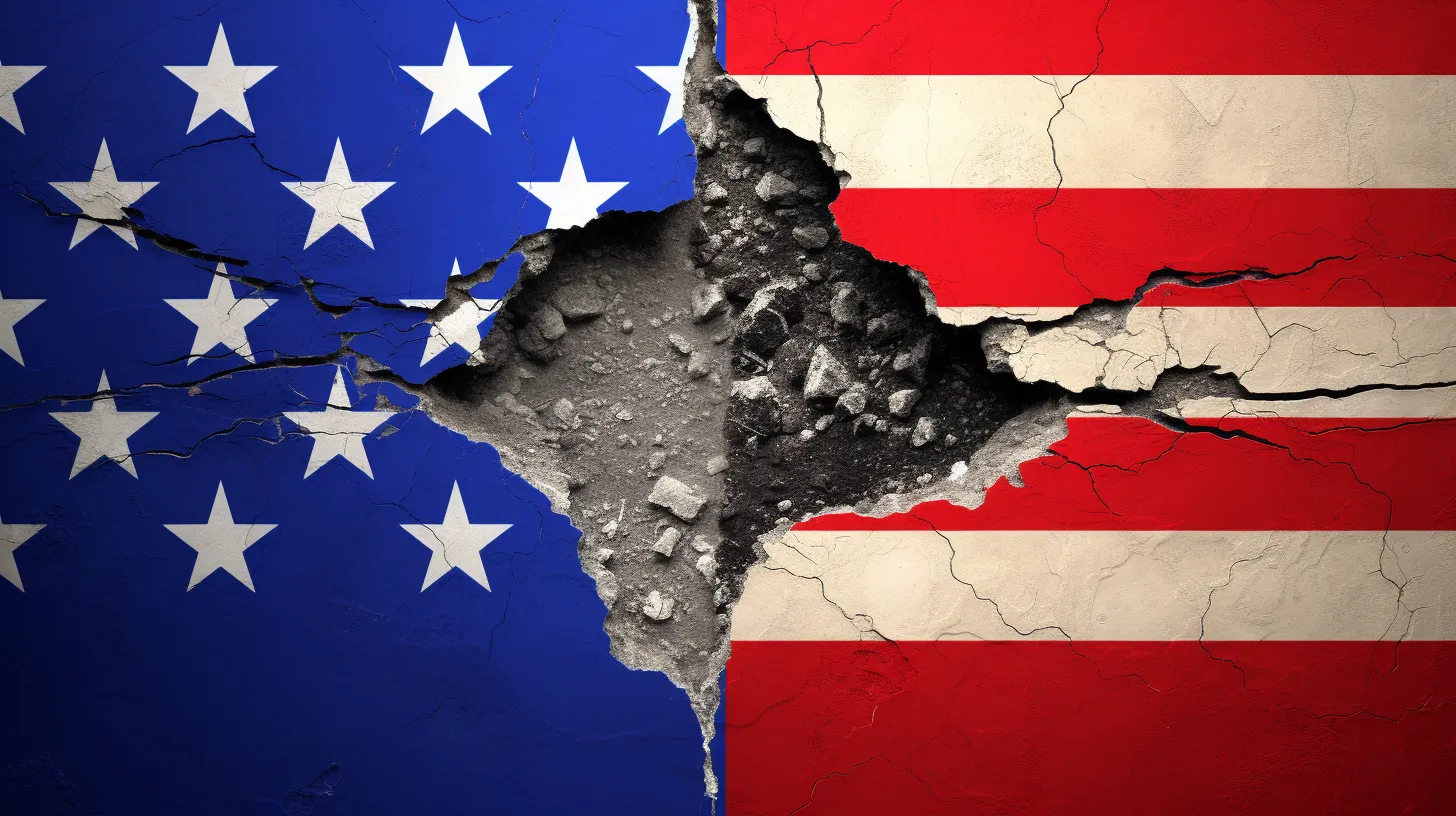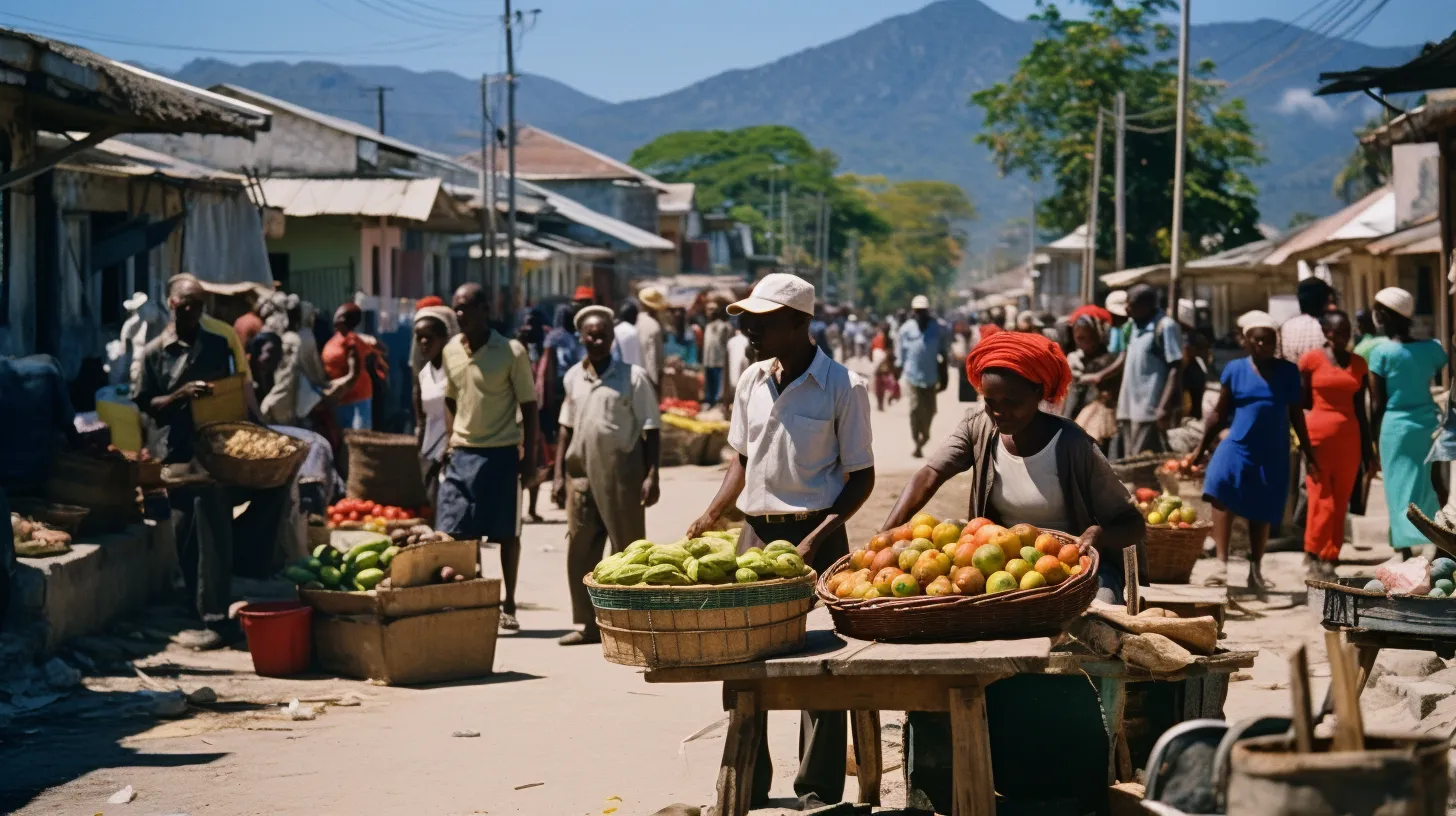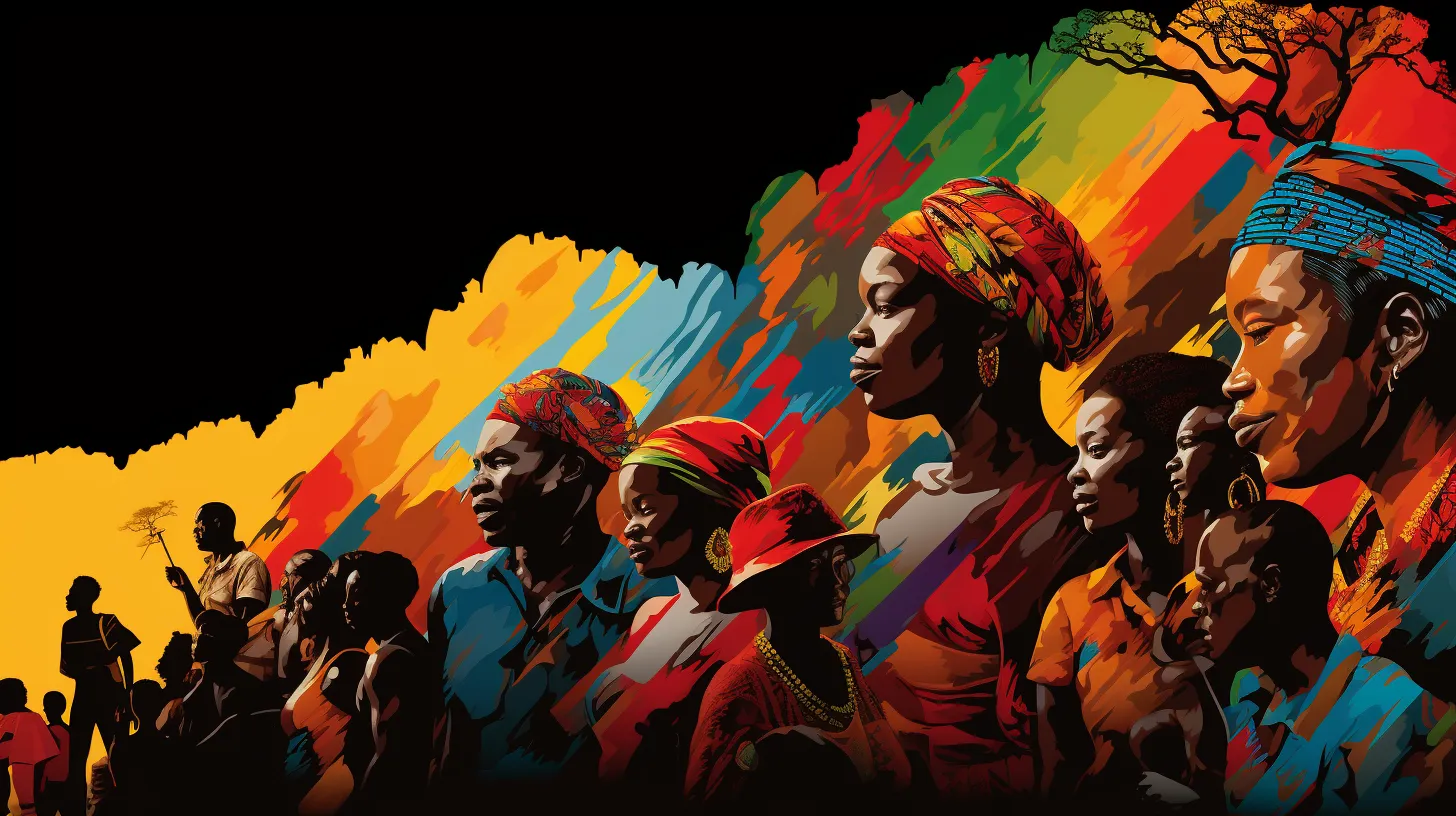In the vibrant and complex cultural landscape of Haiti, the treatment of the deceased is a matter of profound spiritual and social significance. While cremation has become a standard practice in many parts of the Western world due to cost and space efficiency, it remains a rarity in Haiti. The overwhelming preference for traditional burial is not merely a matter of habit but is deeply rooted in a syncretic blend of Roman Catholicism and Haitian Vodou. For the vast majority of Haitians, the physical body is viewed as a sacred vessel that must remain intact to ensure the soul’s safe transition into the afterlife.
Walking through a Haitian cemetery, such as the Grand Cemetery in Port-au-Prince, one does not see simple headstones on grassy lawns. Instead, the landscape is dominated by elaborate above-ground mausoleums that resemble small houses, creating literal “cities of the dead.” This architectural tradition reflects the belief that the dead continue to live alongside the living and require a dignified, physical home.
The resistance to cremation is tied to the fear that destroying the body severs the connection between the ancestor and the community, potentially leaving the spirit to wander restlessly.
This article explores the theological, historical, and economic factors that shape Haitian funeral traditions. It examines the specific rituals that require an intact body, the role of the extended family in financing elaborate burials, and the slow, tentative shifts occurring as the Haitian diaspora interacts with global funeral practices.
The Theological Foundation: Why the Body Matters
To understand the aversion to cremation in Haiti, one must first understand the religious framework that governs daily life. Haiti is often described as being 80% Catholic and 100% Vodou, a saying that highlights the fluid integration of these two belief systems. In traditional Roman Catholicism, the resurrection of the body was a central tenet for centuries.
While the Vatican officially permitted cremation in the 1960s, the cultural Catholicism practiced in Haiti tends to be more conservative and traditional. Many older Haitians still view the burning of the body as a denial of the resurrection or a form of punishment, associating fire with the concept of hell.
Parallel to Catholic doctrine is the Vodou understanding of the human soul. In Haitian cosmology, a person is composed of the physical body and two spiritual components: the Gwo Bon Anj (Big Good Angel) and the Ti Bon Anj (Little Good Angel). The Gwo Bon Anj is the animating force or personality that must be carefully detached from the body after death.
Practitioners believe that this separation is a delicate process requiring specific rituals. If the body is incinerated immediately after death, there is a spiritual concern that the spirit may be trapped, confused, or unable to hear the prayers necessary for its elevation to the status of a revered ancestor.
Consequently, the preservation of the corpse is seen as the first step in a long spiritual journey. The body serves as the focal point for prayers, libations, and rituals that guide the spirit toward Ginen, the ancestral home in Africa.
Destroying the physical vessel prematurely is viewed by many traditionalists as an act of spiritual violence that risks harming the soul of the departed and bringing misfortune upon the surviving family members.
Rituals of Transition: The Desounen and the Wake
The funeral process in Haiti involves a series of intricate rites that presuppose the presence of a body. One of the most critical rituals in the Vodou tradition is the Desounen. This is a ceremony performed by a spiritual leader, often a Houngan (priest) or Mambo (priestess), to formally detach the protective spirit or Lwa from the head of the deceased.
This ritual ensures that the spiritual force that guided the person in life is released back to the community or the family lineage. It is a tactile, physical ritual that involves touching the body and speaking directly to the spirit residing within it.

Following the preparation of the body, the veillée (wake) takes place. This is not a somber, quiet affair but a lively community gathering that can last all night. Family, friends, and neighbors gather to sing hymns, share stories, play dominoes, and offer prayers.
The presence of the open casket is central to this event. It allows the community to acknowledge the reality of the death and to offer their final respects directly to the face of the deceased. The physical presence of the body anchors the social reality of the loss.
In rural areas, a Prèt Savann (bush priest) often leads the prayers. These figures are lay leaders who know the Catholic liturgy and Latin prayers but operate outside the official church hierarchy. They conduct the Dernière Prière (Last Prayer) over the body. The specificity of these rites, which involve anointing, dressing, and physically guarding the body, makes the concept of cremation feel alien and functionally impossible within the traditional liturgical framework.
The Architecture of Eternity: Mausoleums and Status
The visual language of death in Haiti is one of permanence and visibility. Unlike the Western trend toward inconspicuous cremation urns or flat grave markers, Haitians aspire to bury their loved ones in above-ground tombs. These mausoleums are often constructed with concrete, painted in bright pastel colors, and adorned with ironwork, crosses, and sometimes tiles.
In many cases, a family’s tomb is more expensive and well-constructed than their actual home. This phenomenon is driven by the desire to honor the dead with a “house” that protects them from the elements and spiritual marauders.
The size and ornamentation of the tomb serve as a public statement of the family’s respect for the deceased and their own social standing. A grand burial is the final gift a family can give, proving that the person was loved and valued. Placing a loved one in the ground without a concrete vault, or worse, reducing them to ash, is often associated with the burial of the indigent or the forgotten. For a family to choose cremation, they would have to overcome the immense social pressure to provide a tangible, visitable monument.
These cemeteries are viewed as active communities. On All Souls’ Day (Fête Gede), cemeteries are filled with people cleaning tombs, lighting candles, and offering food and coffee to the spirits, particularly the Gede family of spirits led by Baron Samedi. This ongoing relationship relies on the physical location of the remains. The tomb is a portal for communication; without the body and the tomb, the focal point for these annual acts of remembrance is lost.
The Economics of Dignity: Funeral Debt
The commitment to traditional burial places a massive financial burden on Haitian families. The cost of a funeral, including the casket, the transport, the church service, the wake, the construction of the tomb, and the post-funeral reception, can easily exceed the annual income of an average family. It is not uncommon for families to sell land, livestock, or take out high-interest loans to pay for a funeral. This is often referred to as “funeral debt,” a significant economic factor in the country.
Despite the financial strain, the cultural mandate remains rigid. The community judges the family based on the quality of the send-off. A “bad death” or a cheap funeral is seen as a source of shame that can tarnish a family’s reputation for a generation. This social pressure reinforces the rejection of cremation, which, even if cheaper, would be interpreted by neighbors as a sign of poverty or a lack of love for the deceased.

However, the economics are complicated by the scarcity of land. In densely populated urban centers like Port-au-Prince, burial plots in established cemeteries are becoming prohibitively expensive and scarce. Families sometimes have to rent tombs for a few years, after which the bones are removed to an ossuary to make room for new bodies. Even in this context, the preference remains for the body to be intact for those initial years, rather than immediate cremation.
The Nine Night Ritual and Ancestral Connection
The funeral is not the end of the mourning process in Haiti; it is merely the beginning. Another crucial tradition is the “Nine Night” or Dernière Prière, held nine days after the death. This period corresponds to the Catholic novena but has deep roots in African traditions regarding the transition of the spirit.
It is believed that for the first nine days, the spirit of the deceased remains close to the home and the body. The ninth night marks the final departure of the spirit toward the afterlife.
During this period, the family maintains a state of mourning that involves specific dietary restrictions, clothing choices (often black or white), and social behaviors. The rituals performed on the ninth night are designed to ensure the spirit does not remain as a ghost to haunt the living. If the body were cremated immediately, the timeline of these rituals would be disrupted.
The physical decomposition of the body in the tomb is understood to mirror the spiritual transition of the soul. As the flesh fades, the spirit becomes freer.
This connection extends to the concept of the ancestors. In Haitian culture, the ancestors are not gone; they are active participants in family life who can offer protection or guidance. Preserving the integrity of the body is seen as a way to maintain the lineage.
The bones eventually represent the enduring essence of the ancestor, which is why ossuaries are respected. Cremation, which reduces bone to ash, is seen by some as an erasure of that lineage.
Modern Pressures and Gradual Shifts
While tradition remains dominant, the 21st century has brought new pressures that are slowly influencing attitudes, particularly among the Haitian diaspora and the urban upper class. Haitians living in the United States, Canada, or France often encounter cremation as a standard, practical option. When these individuals pass away abroad, the cost of repatriating a body to Haiti can be astronomical, sometimes costing nearly $10,000. In these cases, families may opt for cremation abroad and transport the ashes back to Haiti for interment.
Furthermore, the logistical nightmare of burial in Port-au-Prince is forcing a pragmatic re-evaluation for some. The overcrowding of cemeteries and the high cost of real estate have led a small minority to consider cremation. A few funeral homes in the capital now offer cremation services, though they remain a niche market. These services are often marketed as “modern” and “hygienic,” appealing to those who may be less attached to traditional Vodou practices or who prioritize Western efficiency.
Despite these small shifts, the cultural bedrock remains firm. For the average Haitian, the body is the temple of the Holy Spirit and the vessel of the Gwo Bon Anj. Until the theological and cultural definitions of dignity and afterlife transition evolve, cremation will likely remain a marginal practice, viewed with suspicion by the majority of the population.
FAQ
Is cremation legal in Haiti?
Yes, cremation is legal in Haiti. There are no government laws explicitly banning the practice. However, the infrastructure for cremation is limited compared to Western nations.
Crematoriums are primarily found in major urban centers like Port-au-Prince and are operated by private funeral homes. While the state permits it, the lack of demand means that facilities are few and far between.
Do Haitian Catholics follow the Vatican’s stance on cremation?
While the Vatican officially allowed cremation in 1963, provided it is not done as a denial of faith, Haitian Catholicism is deeply traditional and culturally specific. Many Haitian Catholics are unaware of the Vatican’s allowance or choose to ignore it in favor of customary burial. The local religious culture emphasizes the resurrection of the body, and the visual symbolism of the casket and the tomb remains central to the Haitian Catholic funeral mass. Therefore, even devout Catholics in Haiti often reject cremation based on cultural interpretation rather than strict dogma.
What happens to the soul if the body is cremated according to Vodou belief?
In the worldview of Haitian Vodou, the destruction of the body by fire is problematic because it can disrupt the separation of the soul components. Practitioners fear that fire might harm the Gwo Bon Anj or prevent the proper rituals, such as Desounen, from being effective. There is a concern that a spirit without a body or a grave marker may become a wandering spirit, unable to find rest in Ginen (the ancestral Africa). This can lead to spiritual unrest for the living family, who may believe they are being haunted or punished for failing to provide a proper home for the ancestor.
How much does a traditional funeral cost in Haiti compared to cremation?
A traditional funeral is generally much more expensive than cremation due to the costs of the casket, the burial plot, the construction of the mausoleum, and the multi-day feasts for the community. However, because cremation is a niche service offered by upscale funeral homes, it is not always the “budget” option it is in other countries. The scarcity of crematoriums allows providers to charge premium rates. Nevertheless, the primary cost driver in traditional burial is the tomb construction and the social obligation to feed hundreds of mourners, expenses that can be mitigated with a simpler cremation service if the family is willing to brave the social stigma.
Are there any exceptions where cremation is accepted?
Cremation is sometimes accepted in cases of severe public health crises or when a body is repatriated from abroad. During the 2010 earthquake, mass burials were common due to the overwhelming number of casualties, but there was also a pragmatic understanding of the need for rapid disposition of remains, although this caused great spiritual distress.
Additionally, Haitians living in the diaspora who have assimilated into American or European cultures are increasingly choosing cremation, sometimes bringing the urn back to Haiti to be placed in the family tomb, bridging the gap between modern practicality and traditional location.
What is the role of the “Prèt Savann” in funeral rites?
The Prèt Savann, or bush priest, is a crucial figure in rural Haitian funeral traditions. He is a layperson who is knowledgeable in Catholic liturgy, prayers, and hymns but is not an ordained priest. In many communities where a formal priest is not available, the Prèt Savann conducts the wake and the burial service.
His role is to ensure that the soul is commended to God using the correct Latin or French prayers. His authority is derived from community consensus and his knowledge of the sacred texts, playing a vital role in bridging the gap between the formal church and the local folk religion.
